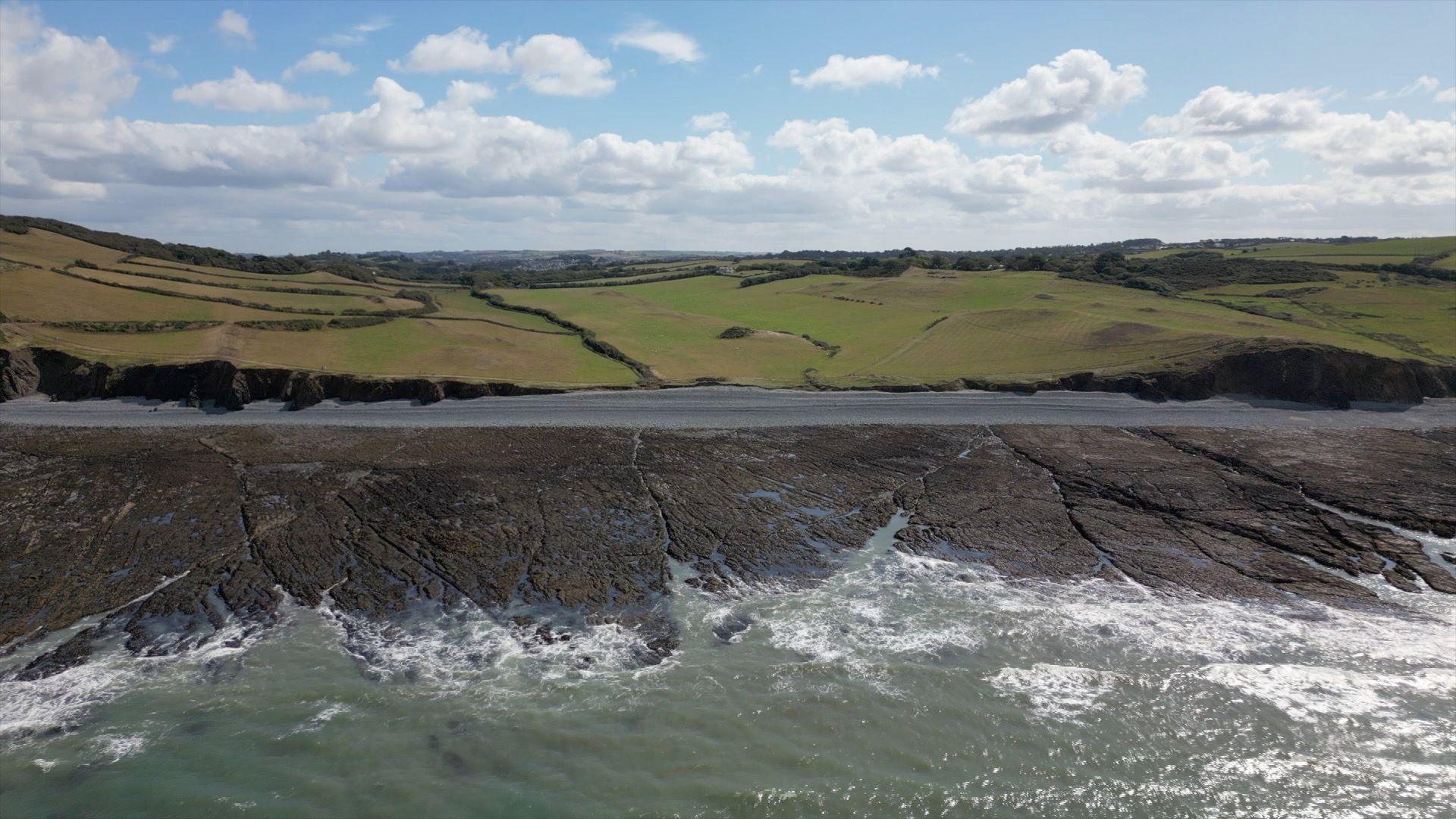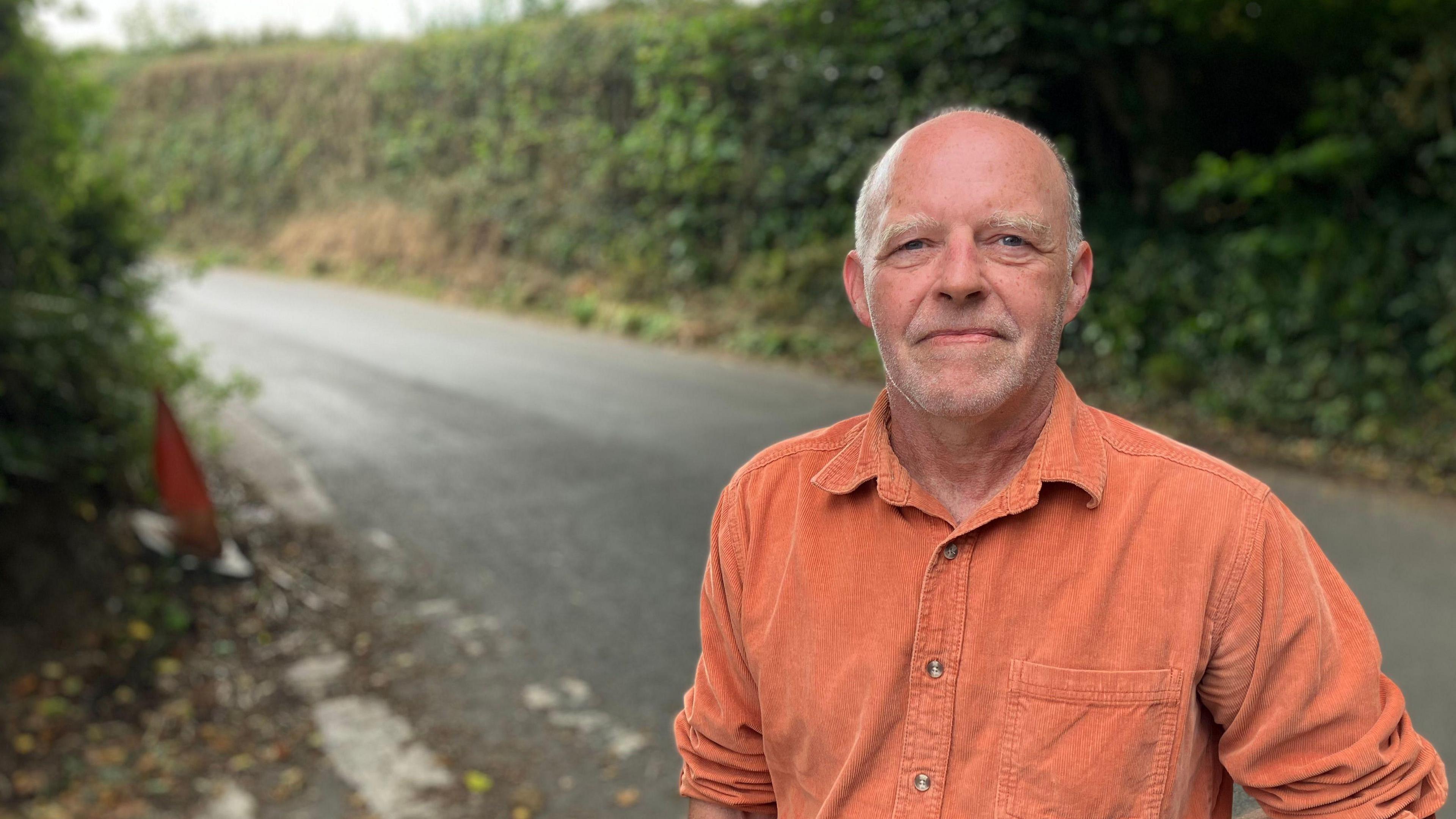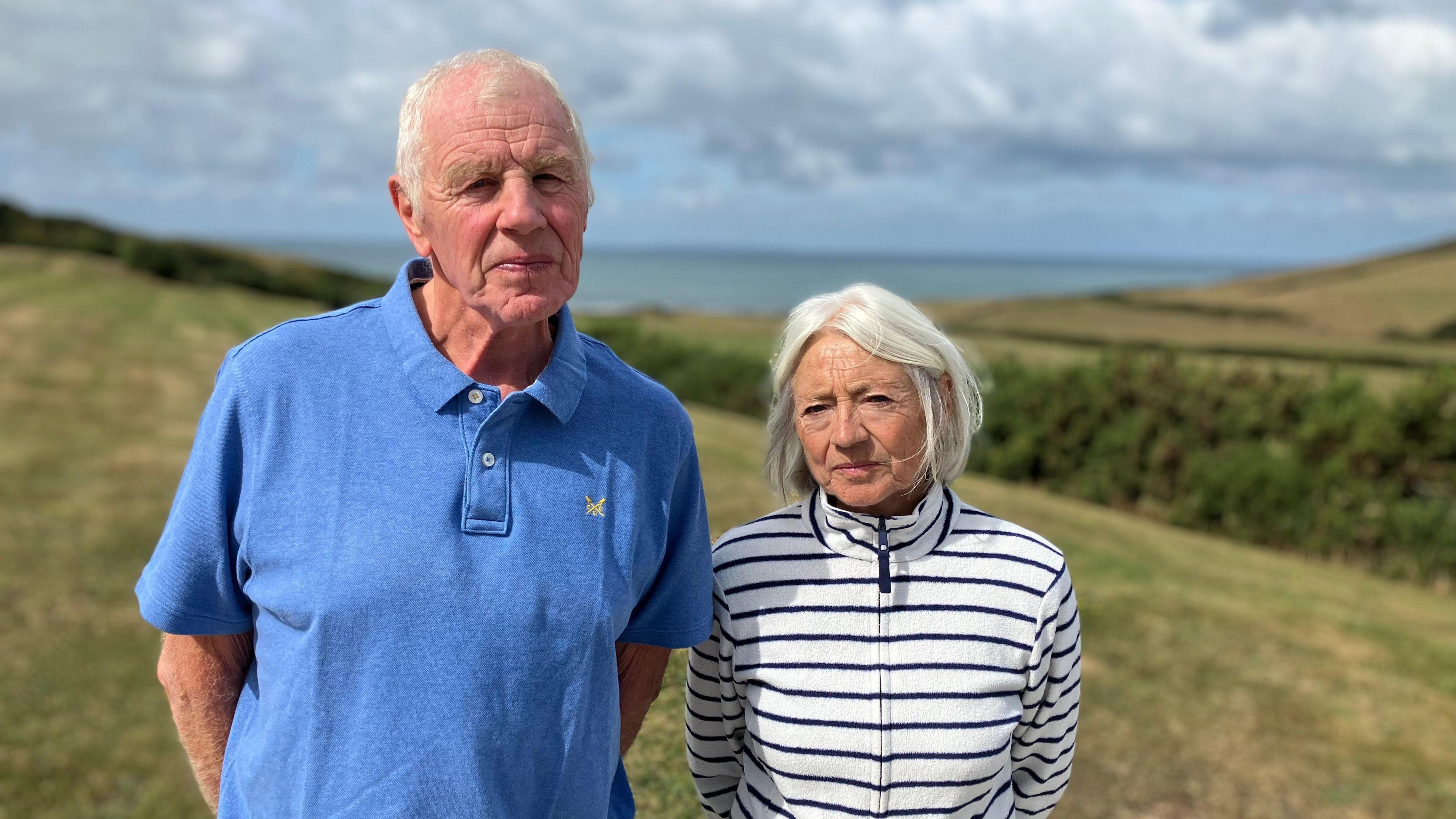'Major setback' for Morocco power cable link plan

The proposal would see four 2,500 mile (4,000km) long cables come ashore near the village of Abbotsham before being buried along a route 14km long
- Published
The government has said it will not support a controversial plan to bring renewable energy to the UK from Morocco through subsea cables that would come ashore in Devon.
Those behind the Xlinks project said they were "bitterly disappointed", adding the scheme had the potential to "provide 8% of the UK's electricity needs".
Concerns had been raised over the potential disruption of the project on those living close to the proposed 14km (8.5 mile) onshore underground cable route.
"It's a major setback," said Johnny Gowdy, director at Regen, a not-for-profit organisation supporting the transition to a net-zero energy future. The government said it made the decision after "careful consideration".
A Department for Energy Security and Net Zero (DESNZ) spokesperson said: "After careful consideration, we have decided not to support the Xlinks Morocco-UK power project.
"We are grateful to the project developers for their innovative proposal.
We will continue to work with Morocco and are committed to strengthening our partnership."
Xlinks had requested government support for the project, including a Contract for Difference (CfD), which would guarantee a set price per MWh of electricity.
In a written ministerial statement , externalon 26 June, Energy Minister Michael Shanks said the scheme was "not in the UK national interest at this time" and "does not clearly align strategically with the government's mission to build homegrown power here in the UK".

Local resident Adam Bridge said he was "overjoyed" the government had decided not to support the Xlinks project
The Xlinks Morocco-UK Power Project proposed using subsea cables to bring renewable wind and solar power from Morocco to the village of Alverdiscott.
Under the proposals, four cables would be buried onshore over a period of up to two years.
A new electricity substation would also be built next to an existing substation at Alverdiscott, along with two new converter stations, on a site of about 32 hectares (79 acres).
If planning permission was granted, the construction work in Devon would take six years.
The project already has a 3.6GW connection agreement with National Grid and was designated as a project of National Significance by the previous Conservative government in 2023.
Xlinks said the scheme could provide enough electricity to power seven million homes.
Local resident Adam Bridge said he was "overjoyed" at the news that the government had decided not to back the scheme.
"We're still worried it might happen though", he added.
"If it does go ahead, we'll be living right in the middle of a building site for years."
Xlinks said any work would be phased over time and planned in a way to minimise impact to the local community as far as possible.
Johnny Gowdy said it was a "major setback", adding: "It's very difficult to see how the project will progress without government support.
"The DESNZ has clearly said this doesn't align with its strategic plans for homegrown energy.
"That said, Xlinks are looking at what other options there may be."
Sir Dave Lewis, chair of the the XLINKS Morocco-UK Power Project, said: "We are hugely surprised and bitterly disappointed that the UK government would choose to walk away from an opportunity to unlock the substantial value that a large-scale renewable energy project like this would bring."
He added: "Ultimately, we have no choice but to accept DESNZ's decision.
"We are now working to unlock the potential of the project and maximise its value for all parties in a different way."
Follow BBC Devon on X, external, Facebook, external and Instagram, external. Send your story ideas to spotlight@bbc.co.uk, external.
Related topics
- Published11 September 2024
